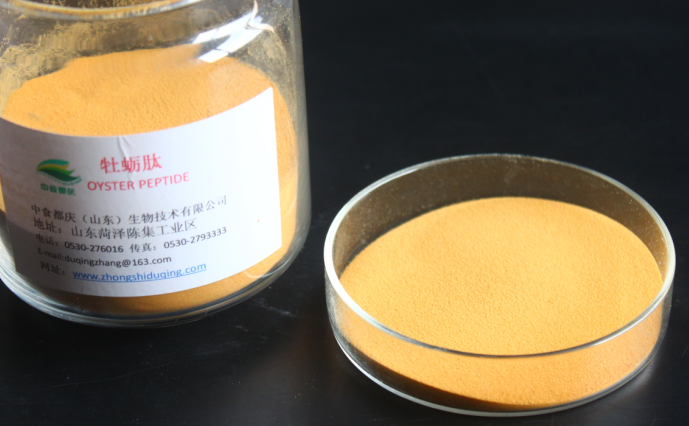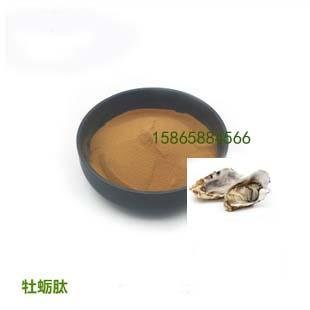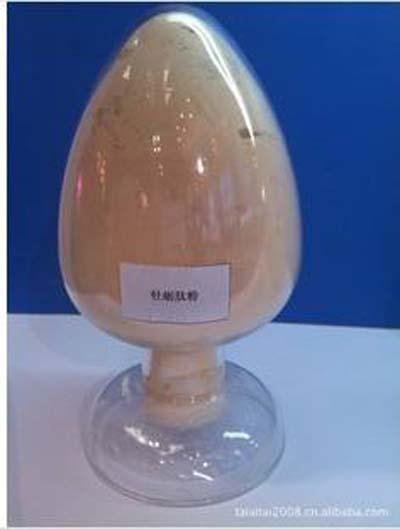Model No.︰mlt001
Brand Name︰zhongshiduqing
Country of Origin︰China
Unit Price︰CNY ¥ 1 / pc
Minimum Order︰1 pc
Food derived oligopeptide (hereinafter referred to as oligopeptide) is a kind of small protein peptide with biological activity, which is made from protein for daily consumption and processed by enzymolysis, separation and refining. The oligopeptides not only retain the nutritional value of the original protein, but also have good solubility, thermal stability, acid and alkali resistance and other processing characteristics. A large number of studies show that more than 70% of the protein in food is absorbed by human body in the form of small molecular peptide, and only less than 30% is absorbed in the form of amino acid.
Oysters, also known as oysters, have always been regarded as delicious seafood and fitness food. Traditional Chinese medicine believes that oyster meat has a good therapeutic value and is a good nourishing yin and blood food. Oyster is one of the first foods with the same source of medicine and food published by the Ministry of health of the people's Republic of China.
Oyster peptide is a kind of small molecular oligopeptide with a relative molecular weight of 200 ~ 800 Dalton, which is made from oyster meal and processed by enzymatic hydrolysis, separation, refining and drying. Oyster peptide is composed of 2-6 amino acids with a relative molecular weight of 200-800. Therefore, oyster peptide can be quickly absorbed by human body without digestion. Oyster peptide is not only rich in protein, vitamins, trace elements and taurine, but also contains a variety of nutrients unique to marine organisms, and oligopeptides have high biological activity.
Compared with the original protein (Oyster Protein), oyster peptide has different functions. First of all, oyster peptide has high activity, and can play a unique physiological role in both trace and low concentration. Second, it has small molecular weight, does not need digestion, and is directly absorbed. In vitro digestion test shows that after pepsin and trypsin treatment, more than 90% of oyster peptide is not digested, indicating that most of oyster peptide will be directly absorbed in the form of polypeptide in vivo.
Oyster peptide contains a large number of essential arginine, trace elements lead, selenium, and rich vitamins for sperm production. Arginine is the main component of sperm production, and lead promotes hormone secretion. If lead is insufficient, the number of spermatozoa will decrease, and the sexual function will also decrease. In addition, selenium is also an indispensable trace element for sperm production.


